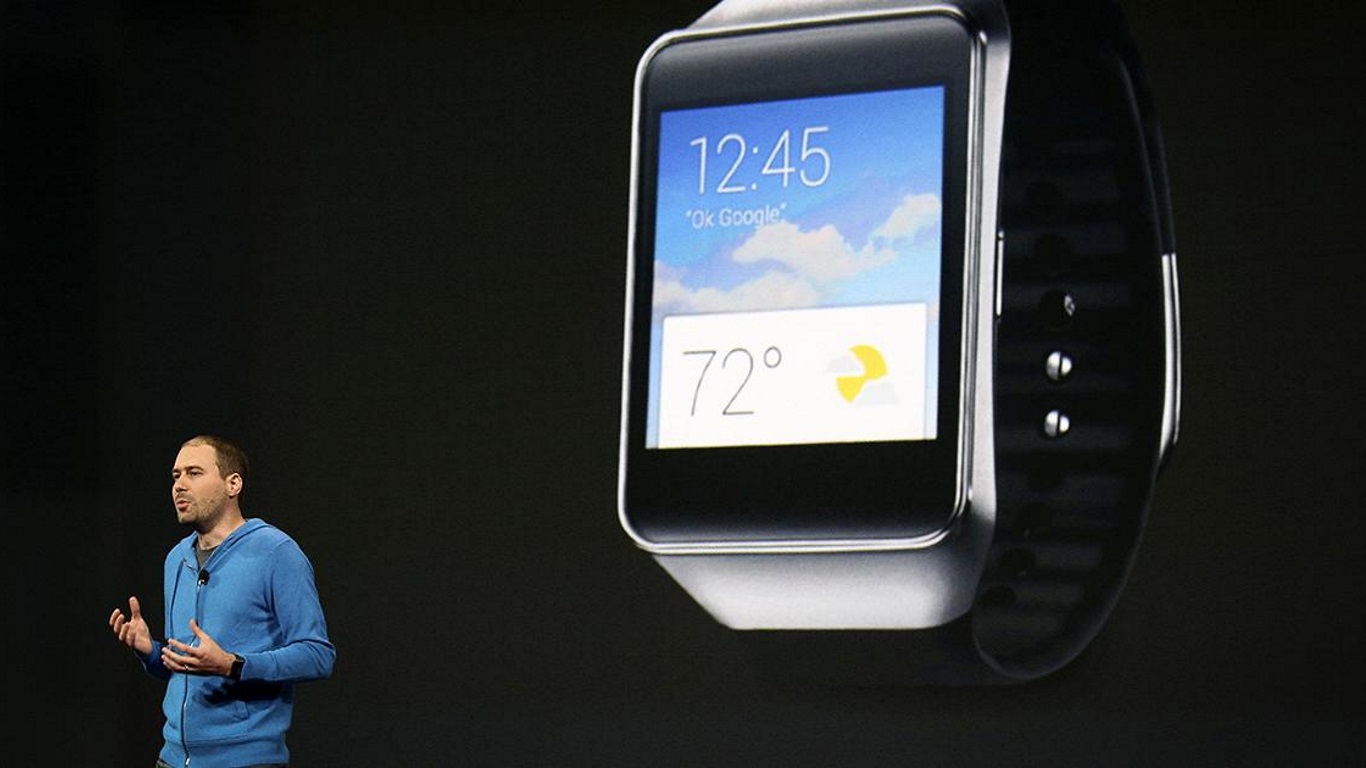 NEWS
NEWS
 NEWS
NEWS
 NEWS
NEWS
Google Introduces Android Wear
Interesting research, compiled by Digital Trends, says digital glasses — think those awful Google Glasses and their ilk — will remain niche products until 2018. And maybe longer. Forever would be fine by me.
If smart glasses never reach mainstream, I’ll be thrilled. Yet, there are niches where they make sense or offer real user and even public benefit. Or maybe get users killed (see below). According to Juniper Research (quoted above) global shipments of smart glasses won’t top 10 million annually before 2018.
I can imagine applications in medicine, military, industry, etc., where hands-free really matters and smart glasses could be very useful. On the negative side, on the few occasions I have seen a Google glasses wearer in public, I turned and walked away.
It’s not so much a concern about being my recorded. If someone wants to surreptitiously shoot video of someone up close there are many devices capable of doing it. And there are times and places and people — think cops in Ferguson and elsewhere — where a recording should always be running.
But, in general, the Google glasses on your face are way too much in my face. And they make you creepy besides, something Google opposes. As an aside, is there any other tech company that has introduced so much creepy into ordinary lives as Google? I think not, but am open to correction.
OK, so maybe you aren’t recording me with those oh-so-unstylish glasses you’re wearing, but what are you doing? If you are watching your smartphone and not me, I can usually tell. But it is hard for me to have any idea what your glasses may be showing you while you are supposedly paying attention to me.
CBS News reports today on a study that found Google glasses significantly cut right side peripheral vision, potentially leading to accidents. I’m amazed that didn’t come up before now.
Juniper makes a comparison between smart glasses today and smart phones 15 years ago. At that time, smart phones were a business phenomena and had not caught on with consumers. It took someone — Steve Jobs — to bring out the right smart phone to make it a consumer success.
Still, I could always see that smartphones would one day wind up in peoples’ pockets. It was clear the functionality was useful, but the designs, price points and lack of an ecosystem held them back.
Certainly, smart eyewear is at the beginning of its evolution. But, unlike smartphones, which I immediately grasped and adopted, smart glasses leave me cold.
I guess I am just blind to their appeal.
![]() Moving down the body and out the upper extremity, I am not immune to the lure of smart watches. I just don’t (yet) see a reason to buy one. That’s despite my having had various heart monitor watches for almost 30 years.
Moving down the body and out the upper extremity, I am not immune to the lure of smart watches. I just don’t (yet) see a reason to buy one. That’s despite my having had various heart monitor watches for almost 30 years.
Today, my iPhone works with the heart monitor strap and talks to Wahoo’s remote display on my bike’s handlebars. I use the Abvio Cyclemeter app and am happy as can be. Except for battery life on the phone, but an add-on battery makes that bearable.
I was a consultant to the Microsoft smart watch team — the SPOT project — but that was pre-iPhone. And, no, I don’t really need a watch as an extension of the phone’s display. GigaOm says Microsoft nearly got it right — and I agree/tried to help — back in 2004.
My lack of excitement aside, I know smart watches are catching on. They deserve to because they provide features and functionality that some people, if not me, find useful. Besides, I’ve never been creeped out by a watch.
THANK YOU